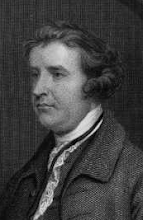Monday, May 9, 2011
The Meaning of "Secularization"
Secularization is the transformation of a society
Society
A society or a human society is ' a group of people related to each other through persistent relations such as social status, roles and social networks. ' A large social grouping that shares the same geographical territory and is subject to the same political authority and dominant cultural...
from close identification with religious values and institutions toward non-religious (or "irreligious") values and secular institutions. Secularization thesis refers to the belief that as societies "progress", particularly through modernization
Modernization
In the social sciences, modernization or modernisation refers to a model of a evolutionary transition from a 'pre-modern' or 'traditional' to a 'modern' society. The teleology of modernization is described in social evolutionism theories, existing as a template that has been generally followed by...
and rationalization
Rationalization (sociology)
In sociology, rationalization is the process where by an increasing number of social actions become based on considerations of teleological efficiency or calculation rather than on motivations derived from morality, emotion, custom, or tradition...
, religion loses its authority in all aspects of social life and governance. The term secularization is also used in the context of the lifting of the monastic restrictions from a member of the clergy.
Secularization has many levels of meaning, both as a theory
Theory
In philosophy, theory refers to contemplation or speculation, as opposed to action...
and a historical process. Social theorists such as Karl Marx
Karl Heinrich Marx was a German philosopher, political economist, historian, political theorist, sociologist, communist, and revolutionary, whose ideas played a significant role in the development of modern communism and socialism...
Sigmund Freud
Sigmund Freud , born Sigismund Schlomo Freud , was an Austrian neurologist who founded the psychoanalytic school of psychiatry...
Max Weber
Maximilian Carl Emil "Max" Weber was a German sociologist and political economist, who profoundly influenced social theory, social research, and the discipline of sociology itself. Weber's major works dealt with the rationalization and "disenchantment" he associated with the rise of capitalism and...
and Émile Durkheim
Émile Durkheim
David Émile Durkheim was a French sociologist. He formally established the academic discipline and, with Karl Marx and Max Weber, is commonly cited as the principal architect of modern social science....
postulated that the modernization of society would include a decline in levels of religiosity
Religiosity
Religiosity, in its broadest sense, is a comprehensive sociological term used to refer to the numerous aspects of religious activity, dedication, and belief . Another term that would work equally well, though is less often used, is religiousness...
Study of this process seeks to determine the manner in which, or extent to which religious creeds, practices and institutions are losing social significance. Some theorists argue that the secularization of modern civilization partly results from our inability to adapt broad ethical and spiritual needs of mankind to the increasingly fast advance of the physical sciences.
The term also has additional meanings, primarily historical. Applied to church
Church Body
A local church is a Christian religious organization made up of a congregation, its members and clergy. They are organized more or less formally, with constitutions and by-laws, maintain offices, sometimes seek non-profit corporate status in the United States and often have state or regional...
property, secularization involves the abandonment of goods by the church where it is sold to purchasers after the government
A government is the organization, or agency through which a political unit exercises its authority, controls and administers public policy, and directs and controls the actions of its members or subjects....
seizes the property, which most commonly happens after reasonable negotiations and arrangements are made. In Catholic
The word catholic comes from the Greek phrase meaning "on the whole," "according to the whole" or "in general" and is a combination of the Greek words meaning "about" and meaning "whole." The word in English can mean either "including a wide variety of things;...
theology
Theology
Theology is the study of a god or, more generally, the study of religious faith, practice, and experience, or of spirituality.-Definition:Augustine of Hippo defined the Latin equivalent, theologia, as "reasoning or discussion concerning the Deity", Richard Hooker defined "theology" in English as...
the term can also denote the permission or authorization given for an individual (typically clergy, who become secular clergy
Secular clergy
The term secular clergy refers to deacons and priests who are not monastics or members of a religious order.-Roman Catholic Church:In the Roman Catholic Church, the secular clergy are ministers, such as deacons and priests, who do not belong to a religious order...
to live outside his or her religious colony
In politics and history, a colony is a territory under the immediate political control of a state. For colonies in antiquity, city-states would often found their own colonies. Some colonies were historically countries, while others were territories without definite statehood from their inception....
(monastery
Monastery denotes the building, or complex of buildings, that houses a room reserved for prayer as well as the domestic quarters and workplace of monastics, whether monks or nuns, and whether living in community or alone .The earliest extant use of the term monastērion is by the first century AD...
either for a fixed or permanent period.
Background
Secularization is sometimes credited both to the cultural shifts in society following the emergence of rationality
The term "rationality" is used differently in different disciplines.In philosophy, rationality is the exercise of reason, a key method used to analyze the data gained through systematically conducted observations....
and the development of science
Science is an enterprise that builds and organizes knowledge in the form of testable explanations and predictions about the natural world...
as a substitute for superstition
Superstition is a credulous belief or notion, not based on reason or knowledge. The word is often used pejoratively to refer to folk beliefs deemed irrational, which is appropiate since irrational means "not based on reason". This leads to some superstitions being called "old wives' tales"...
— Max Weber
Max Weber
Maximilian Carl Emil "Max" Weber was a German sociologist and political economist, who profoundly influenced social theory, social research, and the discipline of sociology itself. Weber's major works dealt with the rationalization and "disenchantment" he associated with the rise of capitalism and...
called this process, "the disenchantment of the world" — and to the changes made by religious institutions to compensate. At the most basic stages, this begins with a slow transition from oral traditions to a writing culture that diffuses knowledge. This first reduces the authority of clerics as the custodians of revealed knowledge. As the responsibility for education
Education
Education in the largest sense is any act or experience that has a formative effect on the mind, character or physical ability of an individual...
has moved from the family and community to the state
Sovereign state
A sovereign state is a state with a permanent population, a defined territory, a government, and the capacity to enter into relations with other sovereign states. It is also normally understood to be a state which is not dependent on, or subject to any other power or state...
two consequences have arisen:
the collective conscience as defined by Durkheim is diminished; and
through the fragmentation of communal activities, religion becomes more a matter of individual choice rather than an observed social obligation.
A major issue in the study of secularization is the extent to which certain trends such as decreased attendance at places of worship indicate a decrease in religiosity or simply a privatization of religious belief, where religious beliefs no longer play a dominant role in public life or in other aspects of decision-making.
The issue of secularization is discussed in various religious traditions. The government of Turkey
Turkey , known officially as the Republic of Turkey , is a Eurasian country that stretches across the Anatolian peninsula in western Asia and Thrace in the Balkan region of southeastern Europe. Turkey is one of the six independent Turkic states...
is an often cited example, following the abolition of the Ottoman
Ottoman Empire
The Sublime Ottoman State was an empire that lasted from 1299 to 1923....
Caliphate
Caliphate
The term caliphate refers to the first system of governance established in Islam. It is a constitutional republic , which means that...
and foundation of the Turkish republic in 1923. This established popular sovereignty in a secular republican framework, in opposition to a theocratic system. As one of many examples of state modernization, this shows secularization and democratization as mutually re-enforcing processes, relying on a separation of religion and state. In expressly secular states like India
India
India , officially the Republic of India , is a country in South Asia. It is the seventh-largest country by geographical area, the second-most populous country with over 1.18 billion people, and the most populous democracy in the world...
it has been argued that the need was to legislate for toleration and respect between quite different religions, and likewise, the secularization of the West was a response to drastically violent intra-Christian feuds between Catholicism
Catholicism
Catholicism is a broad term for the body of the Catholic faith, its theologies and doctrines, its liturgical, ethical, spiritual, and behavioral characteristics, as well as a religious people as a whole....
and Protestantism
Protestantism
Protestantism is one of the four major divisions within Christianity together with the Eastern Orthodox churches, the Oriental Orthodox churches, and the Catholic Church...
Some have therefore argued that Western and Indian secularization is radically different in that it deals with autonomy from religious regulation and control. Considerations of both tolerance and autonomy are relevant to any secular state.
Definitions
John Sommerville (1998) outlined six uses of the term secularization in the scientific literature. The first five are more along the lines of 'definitions' while the sixth is more of a 'clarification of use':
When discussing macro social structures, secularization can refer to differentiation: a process in which the various aspects of society, economic, political, legal, and moral, become increasingly specialized and distinct from one another.
When discussing individual institutions, secularization can denote the transformation of a religious into a secular institution. Examples would be the evolution of institutions such as Harvard University
Harvard University
Harvard University is a private Ivy League university located in Cambridge, Massachusetts, established in 1636 by the Massachusetts legislature...
from a predominantly religious institution into a secular institution (with a divinity school now housing the religious element illustrating differentiation).
When discussing activities, secularization refers to the transfer of activities from religious to secular institutions, such as a shift in provision of social services from churches to the government.
When discussing mentalities, secularization refers to the transition from ultimate concerns to proximate concerns. E.g., individuals in the West are now more likely to moderate their behavior in response to more immediately applicable consequences rather than out of concern for post-mortem consequences. This is a personal religious decline or movement toward a secular lifestyle.
When discussing populations, secularization refers to broad patterns of societal decline in levels of religiosity as opposed to the individual-level secularization of (4) above. This understanding of secularization is also distinct from (1) above in that it refers specifically to religious decline rather than societal differentiation.
When discussing religion, secularization can only be used unambiguously to refer to religion in a generic sense. For example, a reference to Christianity is not clear unless one specifies exactly which denominations of Christianity are being discussed.
Opposition
Abdel Wahab Elmessiri
Abdel Wahab Elmessiri
Abdel-Wahab Elmessiri was an Egyptian scholar, author and general coordinator of the opposition organization Kefaya.Elmessiri was born in Damanhur, Egypt, graduated with a BA in English literature from Alexandria University in 1959...
(2002) outlined two meanings of the secularization term:
Partial Secularization: which is the common meaning of the word, and expresses "The separation between religion and state".
Complete Secularization: this definition is not limited to the partial definition, but exceeds it to "The separation between all (religion, moral, and human) values, and (not just the state) but also to (the human nature in its public and private sides), so that the holiness is removed from the world, and this world is transformed into a usable matter that can be employed for the sake of the strong".
Sociological use and differentiation
As studied by sociologists, one of the major themes of secularization is that of "differentiation": the tendency for areas of life to become more distinct and specialized as a society becomes modernized. European sociology, influenced by anthropology, was interested in the process of change from the so-called primitive societies to increasingly advanced societies. In the U.S., the emphasis was initially on change as an aspect of progress, but Talcott Parsons
Talcott Parsons
Talcott Parsons was an American sociologist who served on the faculty of Harvard University from 1927 to 1973....
refocused on society as a system immersed in a constant process of increased differentiation, which he saw as a process in which new institutions take over the tasks necessary in a society to guarantee its survival as the original monolithic institutions break up. This is a devolution from single, less differentiated institutions to an increasingly differentiated subset of institutions.
Following Parsons, this concept of differentiation has been widely applied. As phrased by Jose Casanova, this "core and the central thesis of the theory of secularization is the conceptualization of the process of societal modernization as a process of functional differentiation and emancipation of the secular spheres – primarily the state, the economy, and science – from the religious sphere and the concomitant differentiation and specialization of religion within its own newly found religious sphere." Casanova also describes this as the theory of "privatization" of religion, which he partially criticizes. While criticizing certain aspects of the traditional sociological theory of secularization, however, David Martin argues that the concept of social differentiation has been its "most useful element."
Institutional secularization
In most Western countries, government, the not-for-profit sector and the private sector have taken over the provision of social welfare functions, but in Germany, secularization has not occurred to the same degree. There are still about 100,000 Church-based charitable foundations providing services from pre-school education to health care for the elderly, making the two major Churches the second largest employers after government. This is funded partly by the Churches out of their own revenues, with the balance coming from general tax revenue. Critics argue that by allowing the Churches to play such a major role, the State is breaching its duty of neutrality under Article 4 of the Grundgesetz, and they consider it inappropriate for such heavy subsidies to be given to the Churches. For their part, the Churches see this work as a natural part of their Christian mission. (On the extensive secularisation in Germany at the beginning of the 19th century, see German Mediatisation
German Mediatisation
The German Mediatisation was the series of mediatisations and secularisations that occurred in Germany between 1795–1814, during the latter part of the era of the French Revolution and then the Napoleonic Era....
Current issues in the study of secularization
At present, secularization as understood in the West, is being debated in the sociology of religion. Some scholars (e.g. Rodney Stark
Rodney Stark
Rodney Stark is an American sociologist of religion. He grew up in Jamestown, North Dakota in a Lutheran family. He spent time in the U.S. Army and worked as a journalist before pursuing graduate studies at The University of California, Berkeley...
Peter Berger
Peter L. Berger
Peter Ludwig Berger is an Austrian-born American sociologist and Lutheran theologian well known for his work, co-authored with Thomas Luckmann, The Social Construction of Reality: A Treatise in the Sociology of Knowledge .-Biography:Berger was born in Vienna, Austria and later emigrated to the...
have argued that levels of religiosity are not declining, while other scholars (e.g. Mark Chaves, N. J. Demerath) have countered by introducing the idea of neo-secularization, which broadens the definition of secularization to include the decline of religious authority.
In other words, rather than using the proportion of irreligious apostates as the sole measure of secularity, neo-secularization argues that individuals increasingly look outside of religion for authoritative positions. Neo-secularizationists would argue that religion has diminishing authority on issues such as birth control
Birth control
Birth control is a regimen of one or more actions, devices, sexual practices, or medications followed in order to deliberately prevent or reduce the likelihood of pregnancy or childbirth...
and argue that religion's authority is declining and secularization is taking place even if religious affiliation may not be declining in the U.S. (a debate still taking place).
Society
A society or a human society is ' a group of people related to each other through persistent relations such as social status, roles and social networks. ' A large social grouping that shares the same geographical territory and is subject to the same political authority and dominant cultural...
from close identification with religious values and institutions toward non-religious (or "irreligious") values and secular institutions. Secularization thesis refers to the belief that as societies "progress", particularly through modernization
Modernization
In the social sciences, modernization or modernisation refers to a model of a evolutionary transition from a 'pre-modern' or 'traditional' to a 'modern' society. The teleology of modernization is described in social evolutionism theories, existing as a template that has been generally followed by...
and rationalization
Rationalization (sociology)
In sociology, rationalization is the process where by an increasing number of social actions become based on considerations of teleological efficiency or calculation rather than on motivations derived from morality, emotion, custom, or tradition...
, religion loses its authority in all aspects of social life and governance. The term secularization is also used in the context of the lifting of the monastic restrictions from a member of the clergy.
Secularization has many levels of meaning, both as a theory
Theory
In philosophy, theory refers to contemplation or speculation, as opposed to action...
and a historical process. Social theorists such as Karl Marx
Karl Heinrich Marx was a German philosopher, political economist, historian, political theorist, sociologist, communist, and revolutionary, whose ideas played a significant role in the development of modern communism and socialism...
Sigmund Freud
Sigmund Freud , born Sigismund Schlomo Freud , was an Austrian neurologist who founded the psychoanalytic school of psychiatry...
Max Weber
Maximilian Carl Emil "Max" Weber was a German sociologist and political economist, who profoundly influenced social theory, social research, and the discipline of sociology itself. Weber's major works dealt with the rationalization and "disenchantment" he associated with the rise of capitalism and...
and Émile Durkheim
Émile Durkheim
David Émile Durkheim was a French sociologist. He formally established the academic discipline and, with Karl Marx and Max Weber, is commonly cited as the principal architect of modern social science....
postulated that the modernization of society would include a decline in levels of religiosity
Religiosity
Religiosity, in its broadest sense, is a comprehensive sociological term used to refer to the numerous aspects of religious activity, dedication, and belief . Another term that would work equally well, though is less often used, is religiousness...
Study of this process seeks to determine the manner in which, or extent to which religious creeds, practices and institutions are losing social significance. Some theorists argue that the secularization of modern civilization partly results from our inability to adapt broad ethical and spiritual needs of mankind to the increasingly fast advance of the physical sciences.
The term also has additional meanings, primarily historical. Applied to church
Church Body
A local church is a Christian religious organization made up of a congregation, its members and clergy. They are organized more or less formally, with constitutions and by-laws, maintain offices, sometimes seek non-profit corporate status in the United States and often have state or regional...
property, secularization involves the abandonment of goods by the church where it is sold to purchasers after the government
A government is the organization, or agency through which a political unit exercises its authority, controls and administers public policy, and directs and controls the actions of its members or subjects....
seizes the property, which most commonly happens after reasonable negotiations and arrangements are made. In Catholic
The word catholic comes from the Greek phrase meaning "on the whole," "according to the whole" or "in general" and is a combination of the Greek words meaning "about" and meaning "whole." The word in English can mean either "including a wide variety of things;...
theology
Theology
Theology is the study of a god or, more generally, the study of religious faith, practice, and experience, or of spirituality.-Definition:Augustine of Hippo defined the Latin equivalent, theologia, as "reasoning or discussion concerning the Deity", Richard Hooker defined "theology" in English as...
the term can also denote the permission or authorization given for an individual (typically clergy, who become secular clergy
Secular clergy
The term secular clergy refers to deacons and priests who are not monastics or members of a religious order.-Roman Catholic Church:In the Roman Catholic Church, the secular clergy are ministers, such as deacons and priests, who do not belong to a religious order...
to live outside his or her religious colony
In politics and history, a colony is a territory under the immediate political control of a state. For colonies in antiquity, city-states would often found their own colonies. Some colonies were historically countries, while others were territories without definite statehood from their inception....
(monastery
Monastery denotes the building, or complex of buildings, that houses a room reserved for prayer as well as the domestic quarters and workplace of monastics, whether monks or nuns, and whether living in community or alone .The earliest extant use of the term monastērion is by the first century AD...
either for a fixed or permanent period.
Background
Secularization is sometimes credited both to the cultural shifts in society following the emergence of rationality
The term "rationality" is used differently in different disciplines.In philosophy, rationality is the exercise of reason, a key method used to analyze the data gained through systematically conducted observations....
and the development of science
Science is an enterprise that builds and organizes knowledge in the form of testable explanations and predictions about the natural world...
as a substitute for superstition
Superstition is a credulous belief or notion, not based on reason or knowledge. The word is often used pejoratively to refer to folk beliefs deemed irrational, which is appropiate since irrational means "not based on reason". This leads to some superstitions being called "old wives' tales"...
— Max Weber
Max Weber
Maximilian Carl Emil "Max" Weber was a German sociologist and political economist, who profoundly influenced social theory, social research, and the discipline of sociology itself. Weber's major works dealt with the rationalization and "disenchantment" he associated with the rise of capitalism and...
called this process, "the disenchantment of the world" — and to the changes made by religious institutions to compensate. At the most basic stages, this begins with a slow transition from oral traditions to a writing culture that diffuses knowledge. This first reduces the authority of clerics as the custodians of revealed knowledge. As the responsibility for education
Education
Education in the largest sense is any act or experience that has a formative effect on the mind, character or physical ability of an individual...
has moved from the family and community to the state
Sovereign state
A sovereign state is a state with a permanent population, a defined territory, a government, and the capacity to enter into relations with other sovereign states. It is also normally understood to be a state which is not dependent on, or subject to any other power or state...
two consequences have arisen:
the collective conscience as defined by Durkheim is diminished; and
through the fragmentation of communal activities, religion becomes more a matter of individual choice rather than an observed social obligation.
A major issue in the study of secularization is the extent to which certain trends such as decreased attendance at places of worship indicate a decrease in religiosity or simply a privatization of religious belief, where religious beliefs no longer play a dominant role in public life or in other aspects of decision-making.
The issue of secularization is discussed in various religious traditions. The government of Turkey
Turkey , known officially as the Republic of Turkey , is a Eurasian country that stretches across the Anatolian peninsula in western Asia and Thrace in the Balkan region of southeastern Europe. Turkey is one of the six independent Turkic states...
is an often cited example, following the abolition of the Ottoman
Ottoman Empire
The Sublime Ottoman State was an empire that lasted from 1299 to 1923....
Caliphate
Caliphate
The term caliphate refers to the first system of governance established in Islam. It is a constitutional republic , which means that...
and foundation of the Turkish republic in 1923. This established popular sovereignty in a secular republican framework, in opposition to a theocratic system. As one of many examples of state modernization, this shows secularization and democratization as mutually re-enforcing processes, relying on a separation of religion and state. In expressly secular states like India
India
India , officially the Republic of India , is a country in South Asia. It is the seventh-largest country by geographical area, the second-most populous country with over 1.18 billion people, and the most populous democracy in the world...
it has been argued that the need was to legislate for toleration and respect between quite different religions, and likewise, the secularization of the West was a response to drastically violent intra-Christian feuds between Catholicism
Catholicism
Catholicism is a broad term for the body of the Catholic faith, its theologies and doctrines, its liturgical, ethical, spiritual, and behavioral characteristics, as well as a religious people as a whole....
and Protestantism
Protestantism
Protestantism is one of the four major divisions within Christianity together with the Eastern Orthodox churches, the Oriental Orthodox churches, and the Catholic Church...
Some have therefore argued that Western and Indian secularization is radically different in that it deals with autonomy from religious regulation and control. Considerations of both tolerance and autonomy are relevant to any secular state.
Definitions
John Sommerville (1998) outlined six uses of the term secularization in the scientific literature. The first five are more along the lines of 'definitions' while the sixth is more of a 'clarification of use':
When discussing macro social structures, secularization can refer to differentiation: a process in which the various aspects of society, economic, political, legal, and moral, become increasingly specialized and distinct from one another.
When discussing individual institutions, secularization can denote the transformation of a religious into a secular institution. Examples would be the evolution of institutions such as Harvard University
Harvard University
Harvard University is a private Ivy League university located in Cambridge, Massachusetts, established in 1636 by the Massachusetts legislature...
from a predominantly religious institution into a secular institution (with a divinity school now housing the religious element illustrating differentiation).
When discussing activities, secularization refers to the transfer of activities from religious to secular institutions, such as a shift in provision of social services from churches to the government.
When discussing mentalities, secularization refers to the transition from ultimate concerns to proximate concerns. E.g., individuals in the West are now more likely to moderate their behavior in response to more immediately applicable consequences rather than out of concern for post-mortem consequences. This is a personal religious decline or movement toward a secular lifestyle.
When discussing populations, secularization refers to broad patterns of societal decline in levels of religiosity as opposed to the individual-level secularization of (4) above. This understanding of secularization is also distinct from (1) above in that it refers specifically to religious decline rather than societal differentiation.
When discussing religion, secularization can only be used unambiguously to refer to religion in a generic sense. For example, a reference to Christianity is not clear unless one specifies exactly which denominations of Christianity are being discussed.
Opposition
Abdel Wahab Elmessiri
Abdel Wahab Elmessiri
Abdel-Wahab Elmessiri was an Egyptian scholar, author and general coordinator of the opposition organization Kefaya.Elmessiri was born in Damanhur, Egypt, graduated with a BA in English literature from Alexandria University in 1959...
(2002) outlined two meanings of the secularization term:
Partial Secularization: which is the common meaning of the word, and expresses "The separation between religion and state".
Complete Secularization: this definition is not limited to the partial definition, but exceeds it to "The separation between all (religion, moral, and human) values, and (not just the state) but also to (the human nature in its public and private sides), so that the holiness is removed from the world, and this world is transformed into a usable matter that can be employed for the sake of the strong".
Sociological use and differentiation
As studied by sociologists, one of the major themes of secularization is that of "differentiation": the tendency for areas of life to become more distinct and specialized as a society becomes modernized. European sociology, influenced by anthropology, was interested in the process of change from the so-called primitive societies to increasingly advanced societies. In the U.S., the emphasis was initially on change as an aspect of progress, but Talcott Parsons
Talcott Parsons
Talcott Parsons was an American sociologist who served on the faculty of Harvard University from 1927 to 1973....
refocused on society as a system immersed in a constant process of increased differentiation, which he saw as a process in which new institutions take over the tasks necessary in a society to guarantee its survival as the original monolithic institutions break up. This is a devolution from single, less differentiated institutions to an increasingly differentiated subset of institutions.
Following Parsons, this concept of differentiation has been widely applied. As phrased by Jose Casanova, this "core and the central thesis of the theory of secularization is the conceptualization of the process of societal modernization as a process of functional differentiation and emancipation of the secular spheres – primarily the state, the economy, and science – from the religious sphere and the concomitant differentiation and specialization of religion within its own newly found religious sphere." Casanova also describes this as the theory of "privatization" of religion, which he partially criticizes. While criticizing certain aspects of the traditional sociological theory of secularization, however, David Martin argues that the concept of social differentiation has been its "most useful element."
Institutional secularization
In most Western countries, government, the not-for-profit sector and the private sector have taken over the provision of social welfare functions, but in Germany, secularization has not occurred to the same degree. There are still about 100,000 Church-based charitable foundations providing services from pre-school education to health care for the elderly, making the two major Churches the second largest employers after government. This is funded partly by the Churches out of their own revenues, with the balance coming from general tax revenue. Critics argue that by allowing the Churches to play such a major role, the State is breaching its duty of neutrality under Article 4 of the Grundgesetz, and they consider it inappropriate for such heavy subsidies to be given to the Churches. For their part, the Churches see this work as a natural part of their Christian mission. (On the extensive secularisation in Germany at the beginning of the 19th century, see German Mediatisation
German Mediatisation
The German Mediatisation was the series of mediatisations and secularisations that occurred in Germany between 1795–1814, during the latter part of the era of the French Revolution and then the Napoleonic Era....
Current issues in the study of secularization
At present, secularization as understood in the West, is being debated in the sociology of religion. Some scholars (e.g. Rodney Stark
Rodney Stark
Rodney Stark is an American sociologist of religion. He grew up in Jamestown, North Dakota in a Lutheran family. He spent time in the U.S. Army and worked as a journalist before pursuing graduate studies at The University of California, Berkeley...
Peter Berger
Peter L. Berger
Peter Ludwig Berger is an Austrian-born American sociologist and Lutheran theologian well known for his work, co-authored with Thomas Luckmann, The Social Construction of Reality: A Treatise in the Sociology of Knowledge .-Biography:Berger was born in Vienna, Austria and later emigrated to the...
have argued that levels of religiosity are not declining, while other scholars (e.g. Mark Chaves, N. J. Demerath) have countered by introducing the idea of neo-secularization, which broadens the definition of secularization to include the decline of religious authority.
In other words, rather than using the proportion of irreligious apostates as the sole measure of secularity, neo-secularization argues that individuals increasingly look outside of religion for authoritative positions. Neo-secularizationists would argue that religion has diminishing authority on issues such as birth control
Birth control
Birth control is a regimen of one or more actions, devices, sexual practices, or medications followed in order to deliberately prevent or reduce the likelihood of pregnancy or childbirth...
and argue that religion's authority is declining and secularization is taking place even if religious affiliation may not be declining in the U.S. (a debate still taking place).
Labels:
Transforming a Nation
Subscribe to:
Post Comments (Atom)














































No comments:
Post a Comment